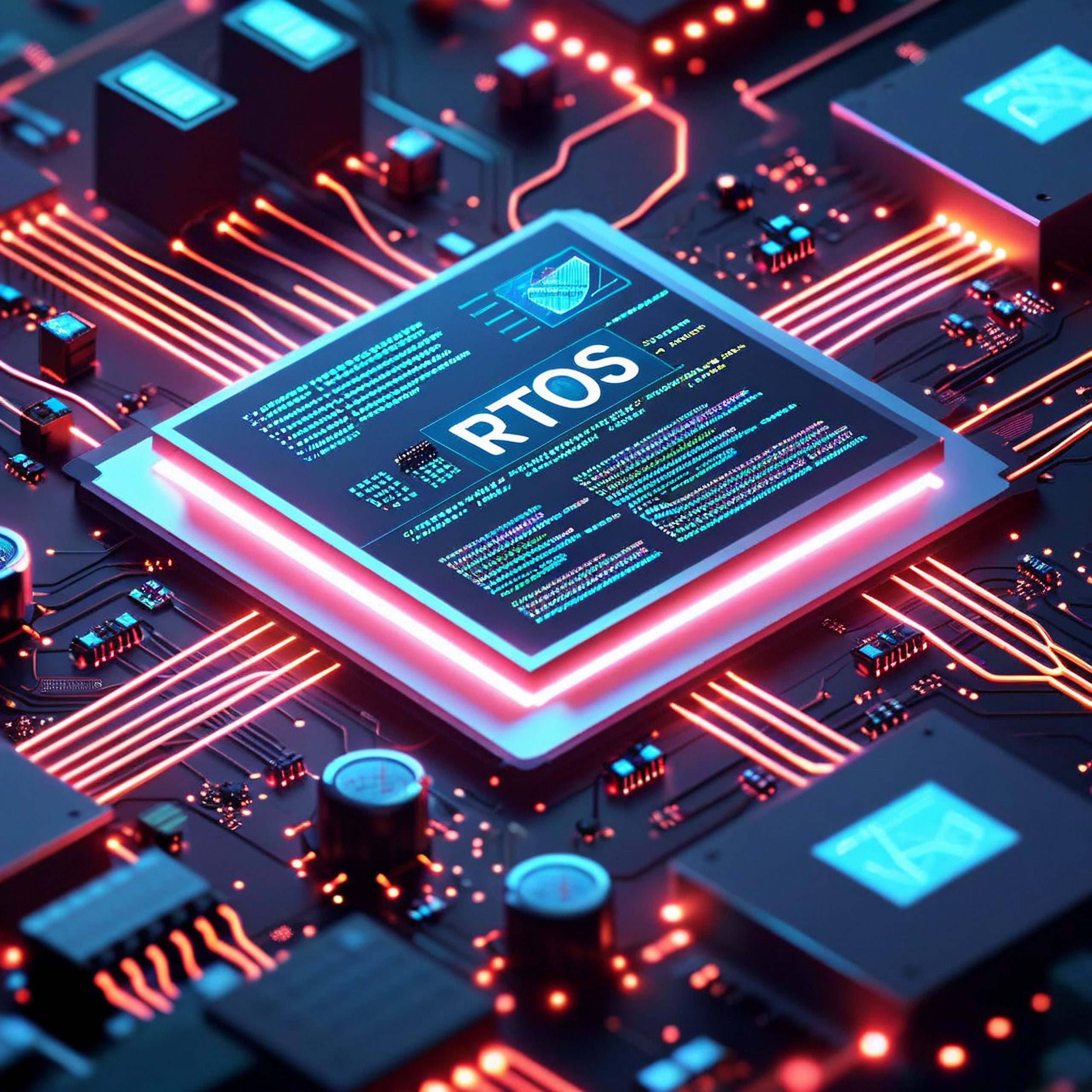Description
In today’s increasing global market place, successful companies are finding that investments in hardware and software are no longer enough to maintain a competitive edge. Human elements with specialised engineering and design skills have become the essential part of the equation. Given the complex tasks that today’s computing devices are required to perform, it’s crucial that the operating systems that drive them are stable, fast and efficient. This course provides foundational materials on RTOS for embedded applications, including task scheduling, memory allocation and resource management. The objective of the course is to give students solid introductory knowledge on Real-Time OS and how to develop applications using RTOS. Learners gain an understanding of the RTOS architecture and acquire the practical skills involved in building an embedded system solutions using FreeRTOS. As a part of this course, we are introducing a remote hardware Lab, and the participants will be able to do the experiments using this platform. This course can be very useful for UG as well as PG students, along with research scholars in the initial phases of their PhD study and course work.
Topics Covered
Introduction to Operating Systems (OS) & Real-Time Operating Systems (RTOS)
- Differences between OS and RTOS
- Key characteristics and applications of RTOS
Development Environment
- Familiarization with Eclipse IDE
- Setting up the development environment
- Basic functionalities and operations in Eclipse IDE
- Keil IDE Installation and Setup
- Installing Keil for RTOS development
- Basic usage and configuration
·Core Concepts of Process, Task, and Thread
- Definitions and differences
- Task, process, and thread management
· Scheduling in RTOS
- Types of scheduling
- Scheduling algorithms and techniques
· FreeRTOS Overview
- Architecture and key features
- Basics of task management in FreeRTOS
FreeRTOS Simulation and Demonstrations
- FreeRTOS simulation basics
- Demonstration of FreeRTOS features
·Inter-Task Communication in RTOS
- Overview of inter-task communication methods
- FreeRTOS - Message Queue
- Setting up message queues
- Use cases of message queues
· Concurrency in RTOS
- Introduction to concurrency in RTOS
- Synchronization techniques in FreeRTOS
Semaphores in FreeRTOS
Binary Semaphore
- Overview and usage of binary semaphores
- Practical applications with FreeRTOS
Counting Semaphore
- Overview of counting semaphores
- Theory and practical usage in FreeRTOS
Mutex in FreeRTOS
- Definition and role of mutex in RTOS
- Implementation of mutex semaphores in FreeRTOS
Memory Management in RTOS
- Introduction to virtual memory concepts
- Memory management techniques in embedded systems
·Cortex-M Microcontrollers
- Overview of the Cortex-M family
- Introduction to Cortex-M microcontroller peripherals
GPIO (General-Purpose Input/Output)
Timer peripherals
Cortex Microcontroller Software Interface Standard (CMSIS) Libraries
· FreeRTOS on STM32 Platform
Porting FreeRTOS to STM32 Target
- Steps for porting FreeRTOS to STM32
- Demonstration of FreeRTOS on STM32
Hands-On with FreeRTOS on STM32 Hardware
- Practical exercises using STM32 hardware and peripherals
- Configuring and testing FreeRTOS on actual hardware
Mini Project
- Hands-on project involving the Embedded RTOS
- Project implementation using STM32 microcontrollers in the SMART Lab environment.
Intended Audience
Engineering students, recent graduates and young professionals with back ground in Embedded C and ARM Cortex Microcontrollers.
Certificate Criteria
Certificate Criteria:
50 % for assignments and 50 % for exit test
Contents:
Lectures, demos, Remote Lab access, and Mini project
Duration & Mode of Delivery
Duration:
75 Hours (Theory: 15 hours & Lab: 60 hours)
24X7 Self-paced using Recorded Lectures
Mode of Delivery:
Theory sessions shall be delivered through online mode using recorded lectures by NPTEL. Lab demo (recorded) and live sessions (if any) shall be delivered through online mode by NIELIT Calicut. Lab experiments and Mini Project shall be done through the using open source/ licence free tools.
Registration and payment
Registration fee Rs.2500
Register and pay using the following link: https://www.calicut.nielit.in/OnlineCourseRegistration.aspx?c=LB-ESM2%2F2024%2F12%2F09


Reviews
There are no reviews yet.